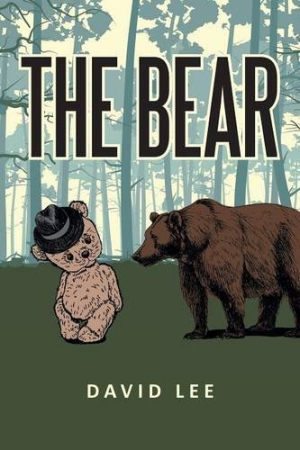The Bear
A quirky gang of plush toys makes this a bizarre and intoxicating tale of friendship, betrayal, and karma.
A world full of living, breathing teddy bears may sound like a childhood fantasy, but David Lee’s The Bear is far from child’s play. Using first-person narration, Lee introduces Theo and his 1920s-esque gang of teddy bears in this bizarrely intoxicating tale of friendship, betrayal, and karma.
While shopping for a present for his sister, Lee stumbles upon Theo—a giant teddy bear with a giant attitude, who happens to be alive. Intrigued, he purchases Theo and soon discovers the bear is the leader of a gang, whose members Lee “busts out” of the toy store shortly thereafter.
As he gets to know his strange new companions, Lee learns about the bears’ reincarnated origins and the events leading up to their imprisonment. He must also stand beside them as they’re threatened by “O.a.t.m.e.a.l.,” an FBI branch dedicated to dealing with the potential threat presented by the bears’ criminal activities.
Theo and his gang have personalities that keep pace with the novel’s quirky plot: for instance, Billy has anger management issues and Houdini is a ninja. These qualities shape the characters instead of defining them, and the bears are more than just their respective eccentricities; they have concerns, goals, and personal philosophies. Such humanization makes the bears easy to get attached to, and it feels natural to rejoice and mourn along with them.
The narrative maintains a well-balanced tone throughout. The book starts with a funny scene and thereafter relies heavily on humor, providing significant encouragement to check reality at the door and get sucked into this plush-toy mafia world. Much of the humor has a dark twist, especially when the bears focus on matters related to their “business,” which creates a bridge into the more serious plot points of the story. Furthermore, occasional peeks into common reality (including fast food runs and visits with Lee’s mother and sister) ground the novel and prevent it from becoming too outlandish.
Any potential moral to the story, however, gets overshadowed by the novelty of its starring characters and their amusing antics. The Bear is an entertaining read with flashes of deeper themes, like friendship and karma, but no single idea is fraught enough to serve as the book’s final takeaway: friendships are only threatened slightly and infrequently, and discussions on karma are left unsettled.
Lee skillfully introduces small doses of reality and meaning into the otherwise off-the-wall premise of The Bear. Lovers of unique contemporary fantasy should enjoy this novel, especially if they possess a slightly skewed sense of humor.
Reviewed by
Caitlynn Lowe
Disclosure: This article is not an endorsement, but a review. The publisher of this book provided free copies of the book and paid a small fee to have their book reviewed by a professional reviewer. Foreword Reviews and Clarion Reviews make no guarantee that the publisher will receive a positive review. Foreword Magazine, Inc. is disclosing this in accordance with the Federal Trade Commission’s 16 CFR, Part 255.

